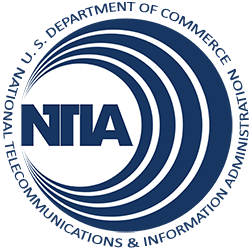Broadband’s ability to expand educational and employment opportunities is especially meaningful for Americans who are deaf or hard of hearing, a community that faces unique challenges in education and that suffers from a rate of unemployment much higher than the national average. Communication Service for the Deaf, Inc. (CSD) intends to expand broadband adoption among people who are deaf and hard of hearing and provide them with online tools to more fully participate in the digital economy. The project proposes to employ a combination of discounted broadband service and specialized computers, technology training from an online state-of-the art support center customized to the community’s needs, public access to videophones at anchor institutions from coast to coast, and a nationwide outreach initiative. Thousands will gain online access to all the Internet has to offer, including sign language interpreters, captioned video services, and other content and functionalities designed especially to advance their educational, employment, and healthcare interests.
New Jersey

| Grantee | Total Award | Type |
|---|---|---|
| Communication Service for the Deaf, Inc. | $14,988,657 | Sustainable Adoption |
| New Jersey Department of Treasury | $39,638,152 | Infrastructure |
| New Jersey Office of Information Technology | $4,926,106 | Broadband Data & Development |
| One Economy Corporation | $28,519,482 | Sustainable Adoption |
| Thomas Edison State College | $5,104,914 | Public Computer Centers |
| University Corporation for Advanced Internet Development | $62,540,162 | Infrastructure |
The New Jersey Broadband Network project proposes to deploy an interoperable 700 MHz public safety wireless broadband network in the Northern New Jersey Urban Area Security Initiative region, which includes over half of the state’s public safety responders. The project covers the counties of Bergen, Essex, Hudson, Middlesex, Morris, Passaic, and Union—encompassing 1,487 square miles a population of 4.5 million, and more than 30,000 public safety users. The network plans to leverage the existing state-owned, 77-tower network, deploying 253 miles of microwave middle mile network in three rings connecting to a 100-mile fiber backbone.
Project Components
State Broadband Capacity Building:
This project will establish a broadband program office within the State of New Jersey’s Office of Information Technology. The office will be primarily responsible for coordinating statewide broadband activity, identifying gaps in broadband usage and developing recommendations for accelerating broadband adoption.
Technical Assistance:
In collaboration with NJEDGE, a non-profit educational organization serving New Jersey, the state Office of Information Technology will provide training, consulting, online resources, and technology sustainability planning to small businesses and higher education institutions. This technical assistance will support broadband-based delivery of curriculum and e-commerce development.
Data Collection, Integration, and Validation:
This project was originally funded for broadband planning activities and two years of data collection. In September of 2010, this project was amended to extend data collection activities for an additional three years and to identify and implement best practices.
The 21st Century Information and Support Ecosystem project proposes to implement a comprehensive program of computer training, wireless Internet access, broadband awareness marketing, and online content and applications to residents of 159 affordable and public housing developments and low-income communities in 50 cities and towns across 31 states and the District of Columbia. The project plans to implement four principal programs: training 2,500 youth to become “Digital Connectors” who will then provide digital literacy training to others in their communities; deploying localized broadband networks in public housing developments; developing online content and applications aimed at low-income, low-literacy audiences.
Thomas Edison State College’s New Jersey Libraries project proposes to add computers at 47 libraries, upgrade connectivity at 79 libraries, and provide job search assistance, employment skills, workforce development programs, and other online resources at 365 libraries across the state. Many of New Jersey’s unemployed residents are seeking to adapt to a job market in which access to computers and broadband are requirements for most job searches, employment applications, and workforce skills training. In many New Jersey communities, the public library is the only place that offers the public free use of computers and Internet access. Many libraries, however, are unable to keep pace with the demand for broadband access. A consortium led by New Jersey's community colleges will deliver training using its existing curriculum for library staff and job seekers.
As part of a longstanding project to connect essential community anchor institutions across the country, and facilitate closer collaboration and long-term benefits for education, research, healthcare, public safety, and government services, the University Corporation for Advanced Internet Development (UCAID) proposes a comprehensive 50-state network benefitting approximately 121,000 community anchors. The project proposes a large-scale, public-private partnership to interconnect more than 30 existing research and education networks, creating a dedicated 100-200 Gbps nationwide fiber backbone with 3.2 terabits per second (TBps) total capacity that would enable advanced networking features such as IPv6 and video multicasting. The project plans to connect community anchors across all disciplines into virtual communities with shared goals and objectives, including colleges, universities, libraries, major veterans and other health care facilities, and public safety entities, with additional benefits to tribes, vulnerable populations, and government entities.
